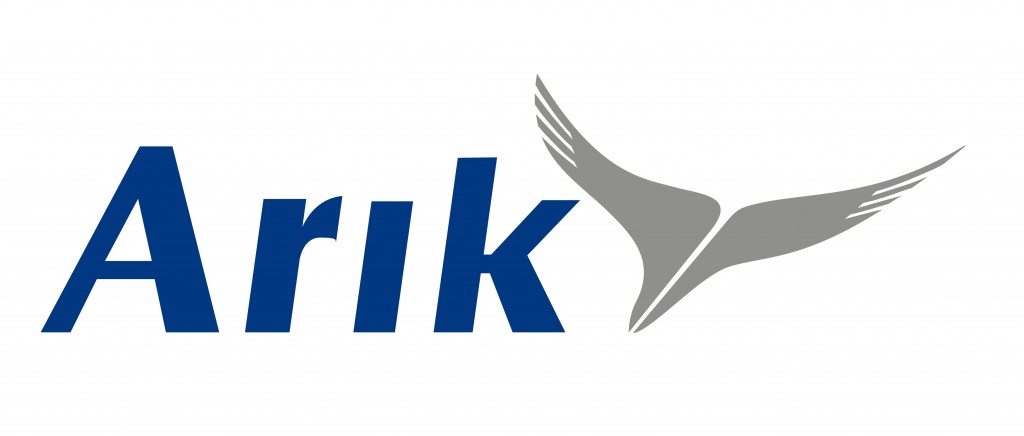News
Paradigm Initiative Berates African Governments for Stifling Internet Freedom

By peter oluka
With the recent Internet shutdown in Togo adding to the growing list of Internet shutdowns in Africa, with at least 11 in 2016 and 7 this year already, Paradigm Initiative Nigeria (PIN), said that it has become easy to see how Internet shutdowns have dominated discussions on digital rights in Africa.
This was contained in a new policy brief, a document obtained by Nigeria CommunicationsWeek, in which PIN lamented that in 2017, alone, internet shutdowns and disruptions have occurred in Ethiopia, Cameroon, Mali, Senegal, Morocco, South Sudan and Togo under the guises of preventing examination malpractices, controlling citizens’ protests and others.
Executive Brief of the Document as notified by Babatunde Okunoye & ‘Boye Adegoke, shows that using their power as the sole providers of telecommunications services or with the assistance (sometimes under coercion) of private telecommunications companies, these governments totally cut off or disrupted access to the Internet or specific social media applications such as Facebook, Whatsapp and Twitter within their territories.
“This brief seeks to highlight the impact of Internet shutdown on press freedom while at the same time argues that the media and other stakeholders must-see Internet Freedom advocacy as the new Press Freedom advocacy.
“While it is easy to see the big picture of Internet shutdowns and disruptions, it might also be easy to lose sight of other digital rights violations within Africa, particularly the surveillance and arrests of journalists, or how Internet shutdowns affect the work of journalists across the continent.
“Even though there were numerous arrests of citizens and bloggers by governments in 2016, 2017 has seen a severe onslaught on online journalists in Africa.
“Being an online journalist is fast becoming one of the most dangerous jobs in Africa.
“The extensive government mandated surveillance1 and blocking of news websites in Egypt2 and the arrests of online journalists covering the Al-hoceima protests3 in Morocco are highlights which demonstrate how journalists have become the prime target for state-sponsored attacks in 2017.
“Furthermore, the clampdown on journalists working digitally also extended to citizen journalists. In the heat of political protests and elections, citizen journalists are often the first on the scene to capture and share pictures of police brutality on social media, actions which have incurred jail time and fines across Africa.
“Elections and protests also routinely trigger Internet shutdowns in many African countries, a development that hampers the ability of online journalists to do their job.
“Freedom of expression is a bellwether for other human rights around the world because the state of freedom of expression is a good indicator of other human rights. Journalists, because of the nature of their profession, are guardians of freedom of expression and the conscience of society. The numerous attacks on online journalists and citizen journalists this year hit a new high and must be resisted.
“The world is still searching for solutions to Internet shutdowns. In Africa in particular, civil society groups have explored avenues such as litigation4,5 to make governments accountable for Internet disruptions in their territories. The available evidence shows that these efforts are yet to have the desired effect on government behavior,” a summary of the document reads.
News
UK Minister for Africa Visits Nigeria to Deepen Strategic Partnership

The United Kingdom’s Minister for Africa, Lord Collins of Highbury, has concluded a three-day visit to Nigeria, aimed at reinforcing the UK-Nigeria Strategic Partnership.

He reaffirmed the UK Government’s strong commitment to deepening trade and investment ties between the United Kingdom and Nigeria.
During his visit, Lord Collins met with senior Nigerian government officials, business leaders, civil society representatives and United Nations agencies.
These engagements underlined the UK’s long-term drive to support Nigeria’s prosperity and stability while deepening bilateral cooperation for transformative growth across our shared priorities.
A key highlight of the visit was Lord Collin’s bilateral meeting with Nigeria’s Minister of Foreign Affairs, Yusuf Tuggar, in which both parties reaffirmed their unwavering commitment to strengthening economic ties and promoting regional security. The Minister was joined by the UK’s Trade Envoy to Nigeria, Florence Eshalomi MP.
Lord Collins also met with Deputy Speaker of the House of Representatives, Hon. Benjamin Kalu, and discussions focused on opportunities to strengthen engagement between UK’s parliament and Nigeria’s National Assembly and the importance of furthering women’s participation in politics.
Speaking on his visit, the UK Government’s Minister for Africa, Lord Collins said: “Nigeria and the UK share a rich, ambitious relationship: one that is deeply rooted in respect.
“Our Strategic Partnership is at the forefront of this, and my visit has focused on how our countries can continue deepening our cooperation on key issues such as trade and investment to drive economic growth and deliver prosperity for us all.”
The Minister held discussions with United Nations representatives on the ongoing reform of the UN system, its implications for Nigeria and how the reform can effectively support those most in need, particularly in Northeast Nigeria, whilst also contributing to global humanitarian efforts.
Lord Collins also met with civil society leaders to discuss electoral integrity and governance reforms, reinforcing the UK’s commitment to democratic values and community empowerment.
He later visited Nigeria’s Anti-Kidnap Fusion Cell: a key security initiative supported by UK expertise through the National Crime Agency and the Integrated Security Fund, which plays a vital role in enhancing local safety and combating serious crime.
Also commenting on the visit, the British High Commissioner to Nigeria, Dr Richard Montgomery, said: “Driving growth is central to the UK’s foreign and development policy. Lord Collins’ visit to Nigeria underscores the UK’s unwavering commitment to deepening our shared prosperity through expanded trade and investment. We are proud to stand alongside Nigeria as it forges a resilient and dynamic economy.”
This visit underscores the UK’s enduring partnership with Nigeria – built on mutual respect, shared goals, and a vision for a prosperous future for both nations.
News
PalmPay Launches CSR Initiatives to Empower Women, Foster Financial Literacy in Northern Nigeria

In a strategic move to expand financial inclusion in Nigeria, leading mobile banking platform, PalmPay has launched a series of CSR programs across Kano and Kaduna. The CSR initiative named “Passing the Baton” represents the brand’s commitment to passing on knowledge and providing the resources individuals and businesses need to achieve financial independence and drive economic empowerment.

This initiative is a bold move by PalmPay to bridge the opportunity gap in the North by providing financial literacy training and micro-business branding support to 5,000 women-owned businesses in Kano and Kaduna. This strategic initiative reaffirms PalmPay’s commitment to inclusive development and economic empowerment, particularly in underserved regions.
“At PalmPay, we believe that real financial inclusion must be far reaching and cover the grassroots,” said Chika Nwosu, Managing Director of PalmPay. “Our new CSR program is focused on supporting gender equity by equipping women with the knowledge, tools, and visibility they need to thrive as entrepreneurs in their communities.”
Through this initiative, beneficiaries will receive free health insurance, hands-on training workshops, enhanced store branding to boost visibility, and branded merchandise to strengthen their business presence.
The initiative is part of PalmPay’s broader strategy to extend its innovative solutions, expand its footprint in Northern Nigeria, while building sustainable partnerships with local stakeholders for long-term impact.
In a show of support, His Royal Highness, the Emir of Kano, Dr. Muhammadu Sanusi II, has endorsed the initiative, calling on other stakeholders to join forces with PalmPay in ensuring the North benefits fully from the growing digital economy. PalmPay has received commendation from community stakeholders, as the initiative aims to serve as a model for similar projects across other northern states.
As PalmPay continues to scale across Nigeria, the company remains committed to bridging the financial inclusion gap and empowering underserved groups, particularly women and youth, through its innovative solutions and impact initiatives.
News
EFCC Witness Admits Writing Off Arik Air’s $2.3M Debt Amid N76Bn Fraud Trial



 E-Financial3 days ago
E-Financial3 days agoSEC Alerts Public on Silverkuun, Trending Dubious Investment Schemes

 Telecom3 days ago
Telecom3 days agoGlo, Huawei, Communications Ministry Bring Digital Services to Abuja Village

 General News3 days ago
General News3 days agoTripoint Travels Hosts Pre-GEC Brunch for Nigerian Delegates Ahead of Global Entrepreneurship Congress 2025

 News3 days ago
News3 days agoPalmPay Launches CSR Initiatives to Empower Women, Foster Financial Literacy in Northern Nigeria

 E-Financial3 days ago
E-Financial3 days agoAfrica Cross-border Payments Set to Hit $1 trillion by 2035

 Telecom3 days ago
Telecom3 days agoExperts @ ABoICT 2025 Warn of Digital Disaster Risks in Nigeria Without AI Governance

 General News2 days ago
General News2 days agoUche Uzoebo, SANEF CEO Makes Case for More Financial Inclusion Strategies Targeting Women

 E-Financial3 days ago
E-Financial3 days agoSANEF, CIBN Partner to Expand Agency Banking Certification





























